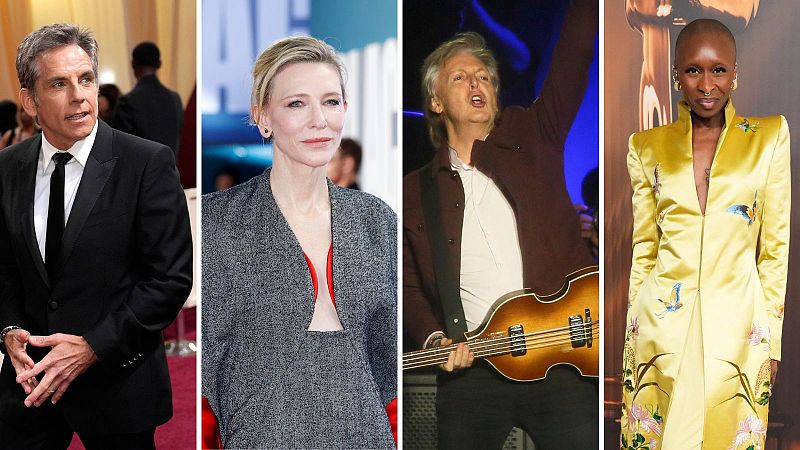
Over 400 Hollywood stars and innovative figures, including Paul McCartney , Cate Blanchett and Guillermo del Toro , have endorsed an open letter addressed to the Trump White House’s Office of Science and Technology Policy. They are calling on the administration to maintain current copyright protections, even as OpenAI and Google push for changes.
The letter explicitly opposes recent suggestions made by major technology corporations, which claim that U.S. copyright legislation ought to permit artificial intelligence firms to utilize protected material for training purposes without obtaining authorization or providing payment to the owners of these copyrights.
The letter asserts, "We strongly hold the view that America’s dominance in artificial intelligence should not undermine our crucial creative sectors." This statement follows submissions from OpenAI and Google proposing that less stringent copyright regulations could enhance U.S. competitiveness in AI technology compared to nations such as China.
The list of signatories includes Ben Stiller, Mark Ruffalo, Cynthia Erivo, Alfonso Cuarón, Chris Rock, Bette Midler, Ava DuVernay, Aubrey Plaza, Ron Howard, Ayo Edебири, Joseph Gordon-Levitt, Lily Gladstone, Sam Mendes, Paul Giamatti, Maggie Gyllenhaal, and Taika Waititi.
They highlight that major corporations such as Google ($2 trillion valuation) and OpenAI (worth more than $157 billion) are seeking a specific exception from the government, allowing them unrestricted access to leverage America’s innovative and intellectual sectors, even though these companies have considerable earnings and ample resources.
"America didn't become a global cultural powerhouse by accident," the letter concludes. "Our success stems directly from our fundamental respect for IP and copyright that rewards creative risk-taking by talented and hardworking Americans from every state and territory."
Below is the message sent by the Hollywood signatories:
Greetings Everyone,
As many of you might know, recent recommendations from OpenAI and Google to the U.S. administration suggest removing legal safeguards around copyrights for AI training purposes. This proposed shift toward "fair use" legislation without proper protection could significantly impact creators' rights.
We initially responded by submitting a letter before the deadline of 11:59 PM ET on Saturday. However, we're still collecting additional signatures as part of an ongoing effort to amend our original stance. If you care about maintaining ethical standards regarding ownership of creative works, please share this information widely.
Feel free to append your signature along with details like affiliations or personal descriptions that best represent yourself. Just remember not to alter the content of the letter itself. Thanks immensely for spreading the word over the weekend!
Your support is greatly appreciated.
Hollywood’s Reaction to the Administration’s Artificial Intelligence Initiative and the importance of adhering to copyright laws.
Members of America’s entertainment sector—including cinematographers, directors, producers, actors, writers, studio heads, production company representatives, musicians, composers, costume, sound and production designers, editors, gaffers, union members, and Academy participants along with numerous other innovative and creative content specialists—have joined together to present this consolidated statement in answer to the Administration’s call for insights regarding the AI Action Plan.
We strongly hold the view that America’s dominance in artificial intelligence should not be achieved at the cost of our vital creative sectors. The U.S. arts and entertainment sector sustains more than 2.3 million American jobs and contributes approximately $229 billion in annual wages, forming the backbone of American democratic sway and soft power globally. However, AI firms are seeking to erode this significant economic and cultural pillar by diminishing copyright safeguards for movies, TV shows, artwork, literature, music, and vocal recordings utilized to develop AI models central to multibillion-dollar company evaluations.
Do not be mistaken: this matter extends far beyond the realm of entertainment. The ability to use copyrighted material for training artificial intelligence affects all sectors reliant on American knowledge production. When technology and AI firms seek unrestricted access to vast amounts of data and information, their demands pose risks not only to cinema, literature, and audio recordings but also threaten the output of various professionals such as authors, publishers, photographers, researchers, architects, engineers, designers, medical practitioners, programmers, and countless others involved in generating intellectual property through computer-based activities.
These fields form the backbone of our collective efforts to explore, study, and disseminate knowledge at both societal and national levels. Thus, addressing this concern transcends issues related solely to technological supremacy or economic factors; it encompasses safeguarding America’s dominance in producing and holding significant intellectual assets across multiple disciplines.
It is evident that both Google ($2 trillion valuation) and OpenAI ($over 157 billion valuation) are advocating for a specific government exception allowing them unrestricted access to American creative and intellectual sectors, even though these entities generate significant revenue and possess ample resources. There is no justification for diminishing or abolishing the copyright protections instrumental in fostering America’s growth. Instead of seeking exemptions from current copyright laws, AI firms should follow legal protocols by securing proper licensing agreements with rights owners—just like all other industries do. The availability of America’s extensive collection of cinematic works, literature, videos, and musical pieces shouldn’t be treated as an issue of national security; hence, they do not necessitate a government-sanctioned waiver from prevailing U.S. copyright regulations.
America didn’t become a global cultural powerhouse by accident. Our success stems directly from our fundamental respect for IP and copyright that rewards creative risk-taking by talented and hardworking Americans from every state and territory. For nearly 250 years, U.S. copyright law has balanced creator’s rights with the needs of the public, creating the world’s most vibrant creative economy. We recommend that the American AI Action Plan uphold existing copyright frameworks to maintain the strength of America’s creative and knowledge industries, as well as American cultural influence abroad.


No comments:
Post a Comment